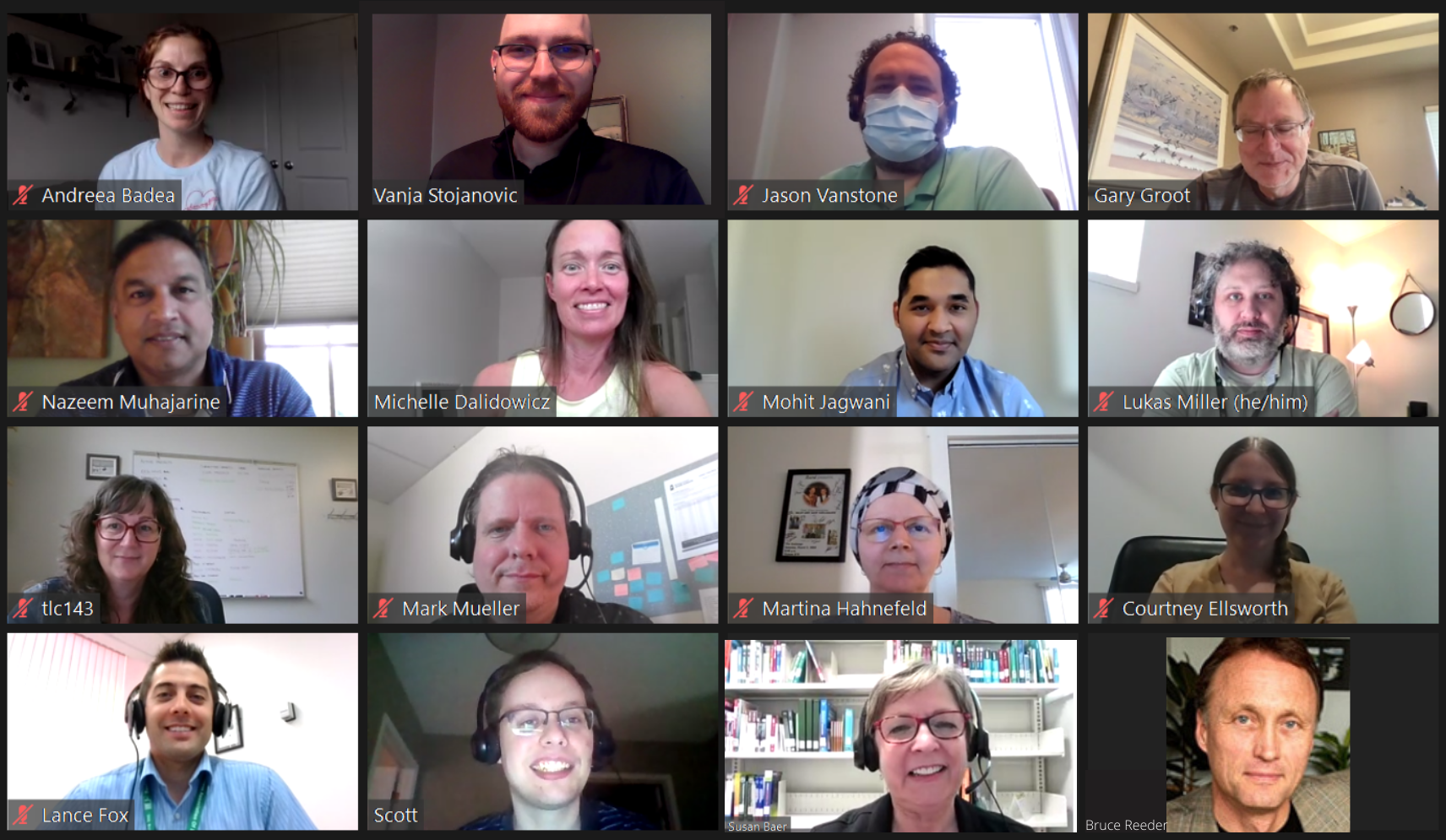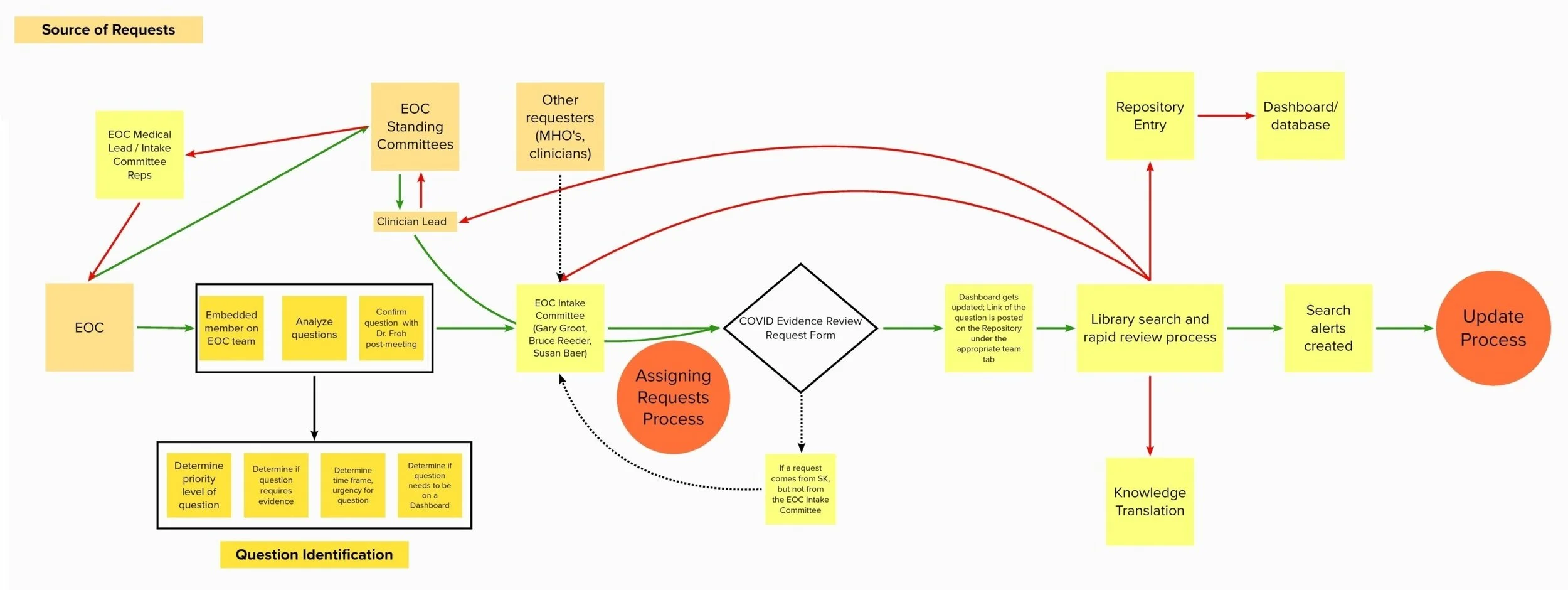The COVID-19 Evidence Support Team
The COVID-19 Evidence Support Team (CEST) was a provincial initiative established in March of 2020 that merged the support of COVID-19 response partners, policymakers, researchers, librarians, and clinical practitioners to initiate a new learning cycle in response to the pandemic. The primary aim of CEST was to meet the urgent need for producing and sustaining the best available evidence related to COVID-19 to facilitate decision-making and pandemic response in Saskatchewan. To achieve this objective, four provincial organizations partnered with one another to establish a single, data-driven system that reflected the scope and latest findings of COVID-19 pandemic.
The CEST partnership was built around the Saskatchewan Health Authority’s questions about COVID-19. To answer those questions, the most up-to-date literature on the coronavirus was reviewed by expert teams which generated two key data types: Evidence Search Reports (ESR) and Rapid Review Reports (RRR). An electronic dashboard, database, and a repository were created to house Evidence Support Reports, Rapid Review Reports, as well as the current status of question. The repository and database created a common platform for clinicians, academics, leaders, and policymakers to find COVID-19 evidence which encompassed a wide range of topics– Long-Term Care, Clinical Departments, Public Health and Prevention, Therapeutics, Infectious Diseases, Health Care Policy, Vulnerable Populations, and Indigenous Peoples.
The CEST initiative quickly expanded in response to the urgency of COVID-19 and the number, and the complexity, of reviews grew. As of November 25, 2021, 262 clinical and policy questions have been posed to the CEST, resulting in 215 reviews.
Members of the COVID-19 Evidence Support Team, June 2022.
The COVID-19 Evidence Support Team (CEST) intake process
COVID-19 Evidence Support for Saskatchewan Pandemic Response Poster
Presented at the 2020 Saskatchewan Health Research Showcase in November 2020.


